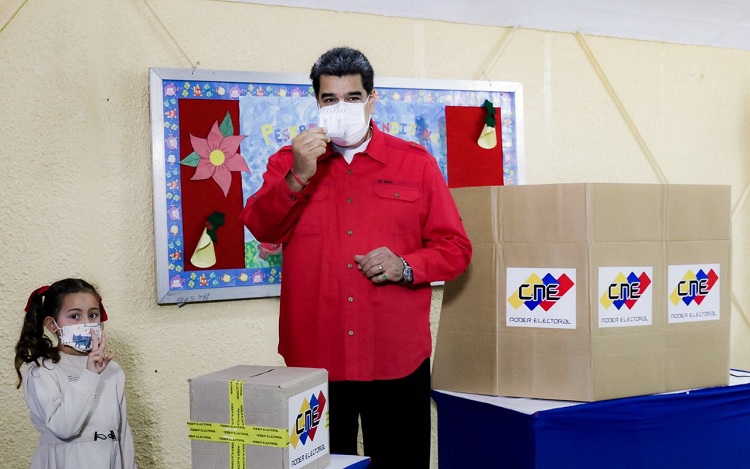The Diplomat
The European Union’s preliminary report on the Venezuelan elections appreciates some “improvements” but also “important structural deficiencies”, such as “arbitrary disqualifications of candidates”, lack of judicial independence, “non-adherence to the rule of law”, “extensive” use of state resources and unequal access to the media. For its part, the PP yesterday criticized the Spanish Government for not having said “nothing” about the elections and limiting itself to waiting for “others to say it first”.
With a turnout of 42%, the Chavistas won in 20 of the 23 states of the country, in addition to Caracas, in last Sunday’s regional and local elections, the first in five years with the participation of the main opposition parties and the first in fifteen years with international observers. The EU Election Observation Mission (EU-EOM) was formed by 130 members and led by the Portuguese Socialist MEP Isabel Santos.
In her first preliminary report, Isabel Santos assured yesterday during a press conference in Caracas that in these elections some “improvements” have been appreciated, among them the participation of the main opposition parties, a “key element to rebuild political life”; the existence of an electoral legal framework that complies with most international standards, the implementation of a more balanced electoral authority -with two non-Chavistas among its five members-, the updating of the electoral roll or a reliable and audited counting system.
However, she continued, the elections showed “important structural deficiencies”, such as “the lack of judicial independence and non-adherence to the rule of law”, which “adversely affected the equality of conditions and fairness and transparency”, or “the extensive use of State resources” for the benefit of Chavista candidates during the electoral campaign, “in spite of the fact that the legal framework establishes sanctioning powers in campaign financing and publicity”.
For his part, the EU High Representative, Josep Borrell, issued a statement based on the conclusions of the observers’ mission. “These elections have been organised under better electoral conditions compared to previous processes, including through a renewed National Electoral Council widely seen as the most balanced of the last 20 years”, he said. “However, the Mission observed structural deficiencies, such as arbitrary political disqualification of candidates, unequal access to the media and the extensive use of state resources during the electoral campaign”, added Borrell, who specified that “the EU Observation Mission will stay in Venezuela until the end of the electoral process and will later publish a final report including recommendations to improve future electoral processes, based on international and regional commitments signed by Venezuela”.
PP: “The Government prefers that others speak first about the elections”
The EU observer mission had been boycotted by the European People’s Party in order “not to be part of Maduro’s electoral farce in Venezuela”, as stated two weeks ago by Spanish MEP Dolors Montserrat. Precisely, the PP yesterday returned to the charge on the subject of the elections in Venezuela taking advantage of the appearance of the Minister of Foreign Affairs, José Manuel Albares, in the Congress to defend the budget items of his Department contemplated in the bill of the General State Budget (PGE) for 2022.
The spokeswoman for Foreign Affairs of the PP in the Lower House, Valentina Martínez, denounced during her appearance the “complicit silence” of the President of the Government, Pedro Sánchez, of Albares himself and of “his partners” politicians before the “whitewashing” of the regime of Nicolás Maduro by the former President of the Government José Luis Rodríguez Zapatero, who last week visited Caracas to meet with Maduro. “It is shameful that we have a socialist president whitewashing the most terrible dictatorships in Latin America”, added Martínez, who also harshly criticized the minister for not having said “nothing” about the Venezuelan elections, “in an unprecedented exercise of leadership where he is waiting for others to say it first”.







